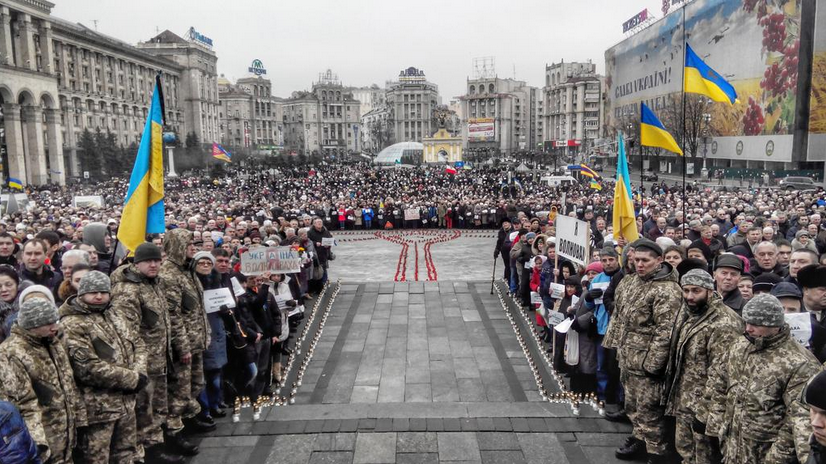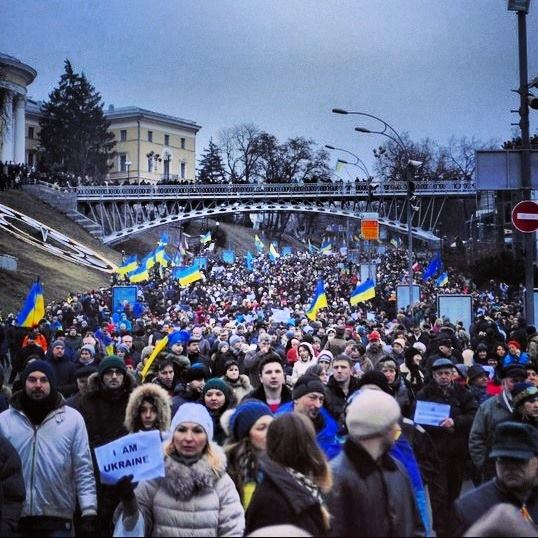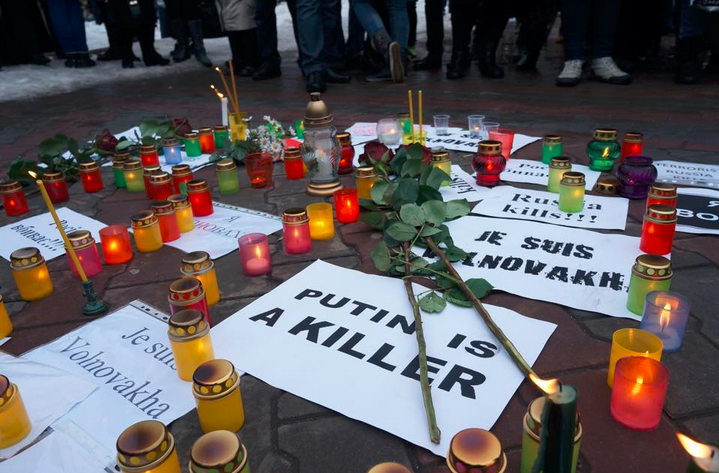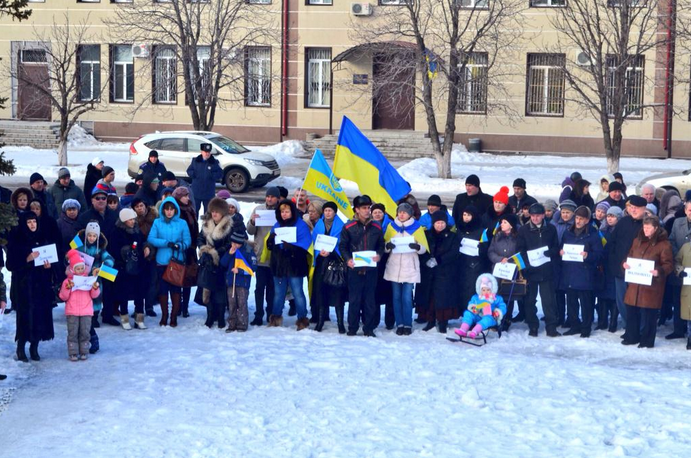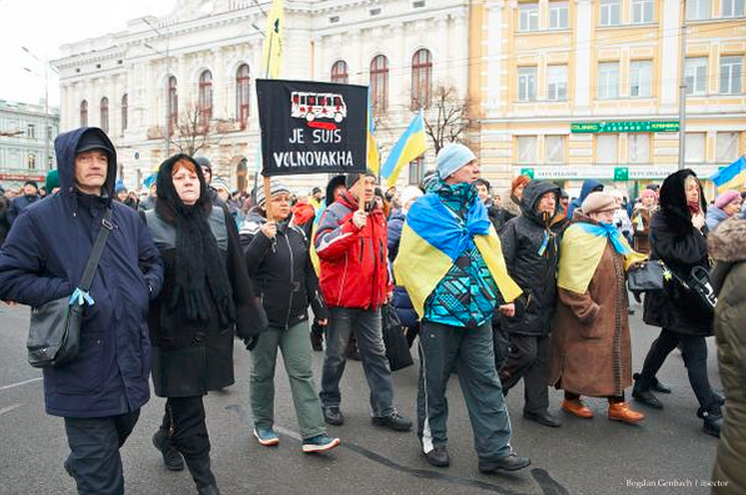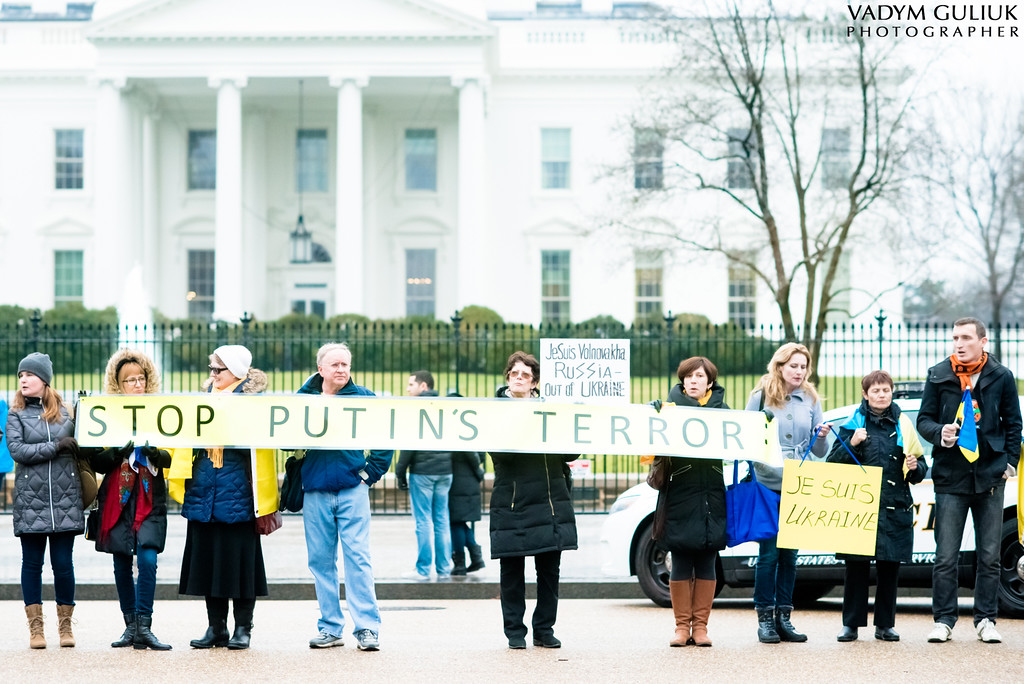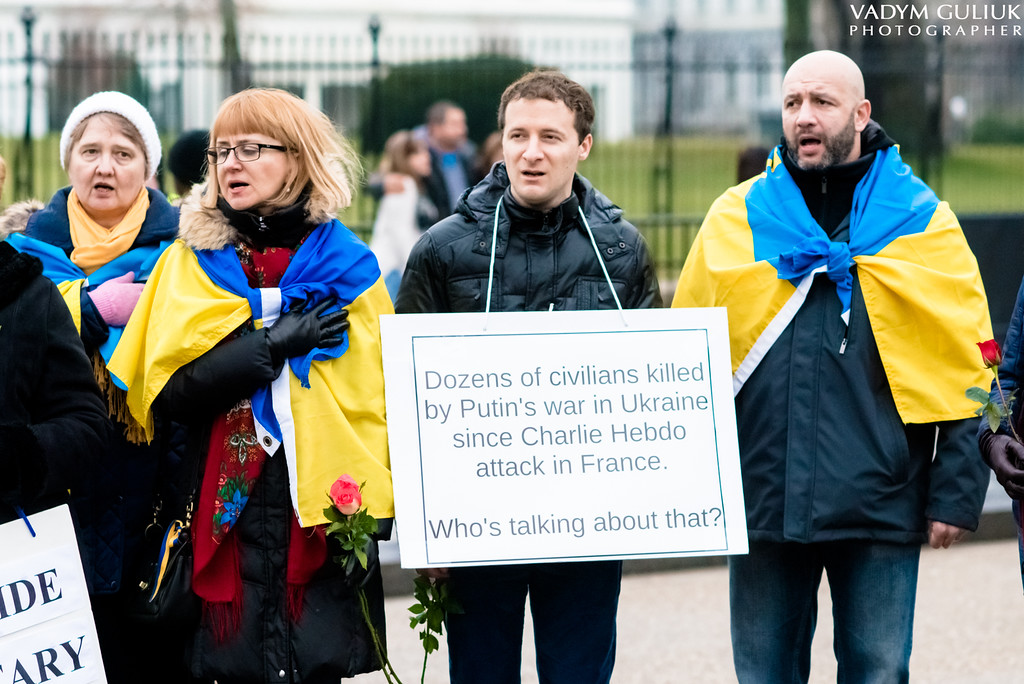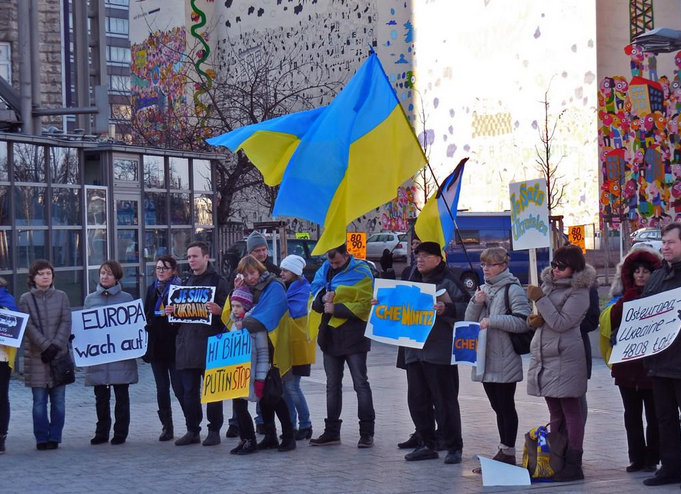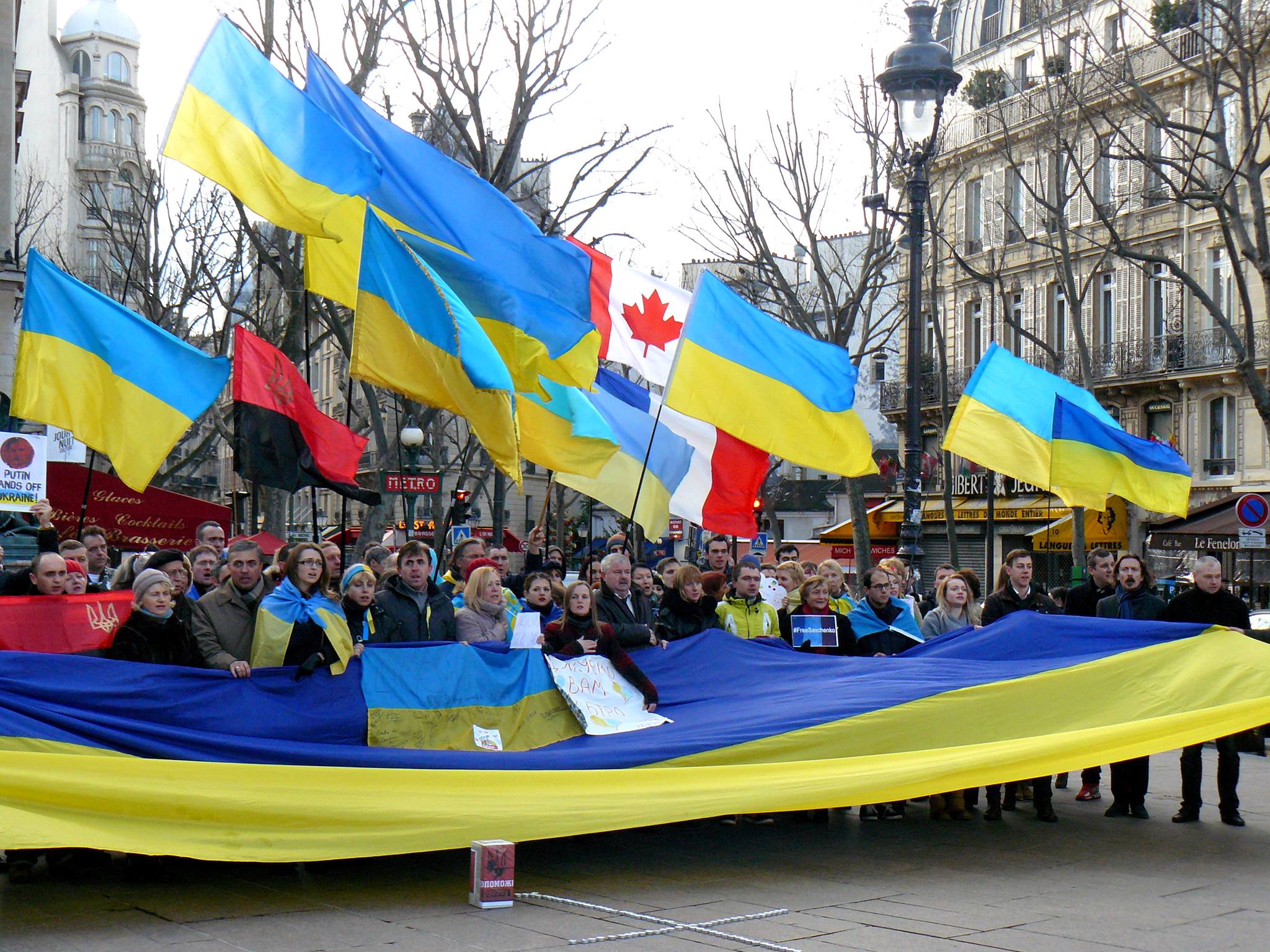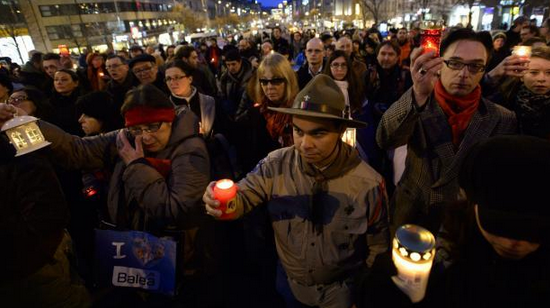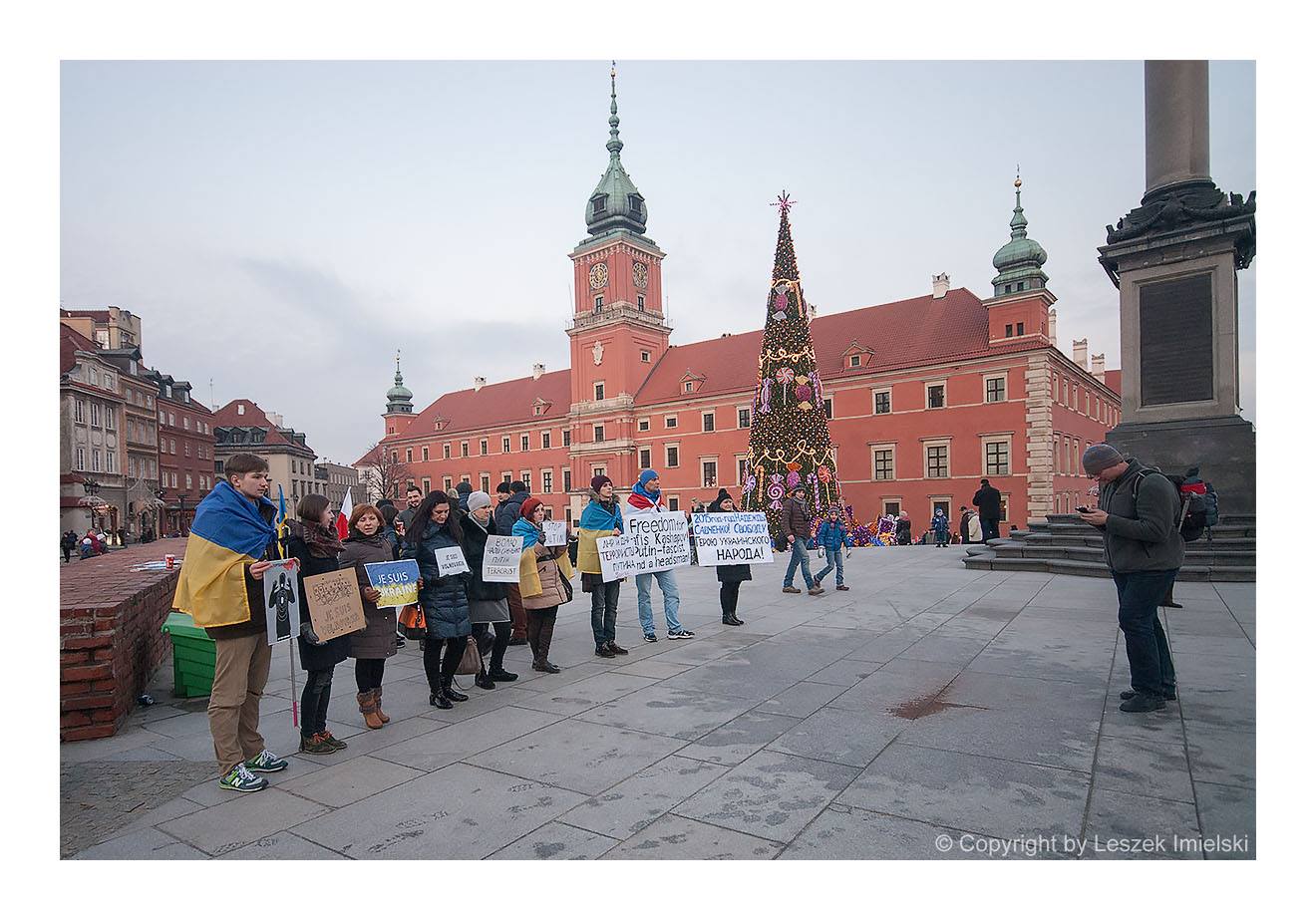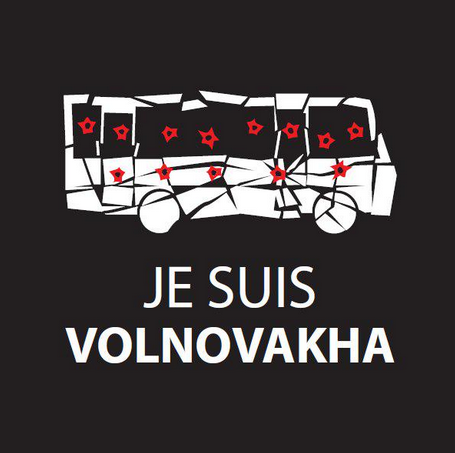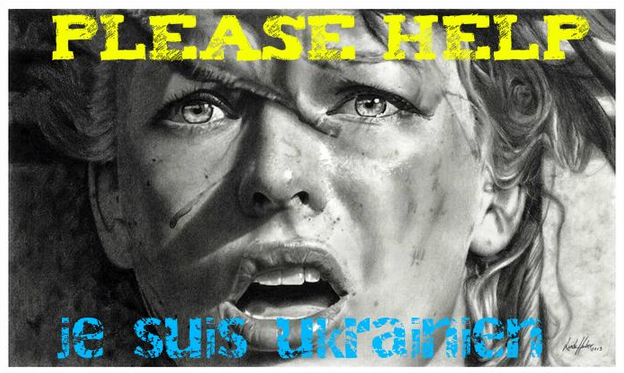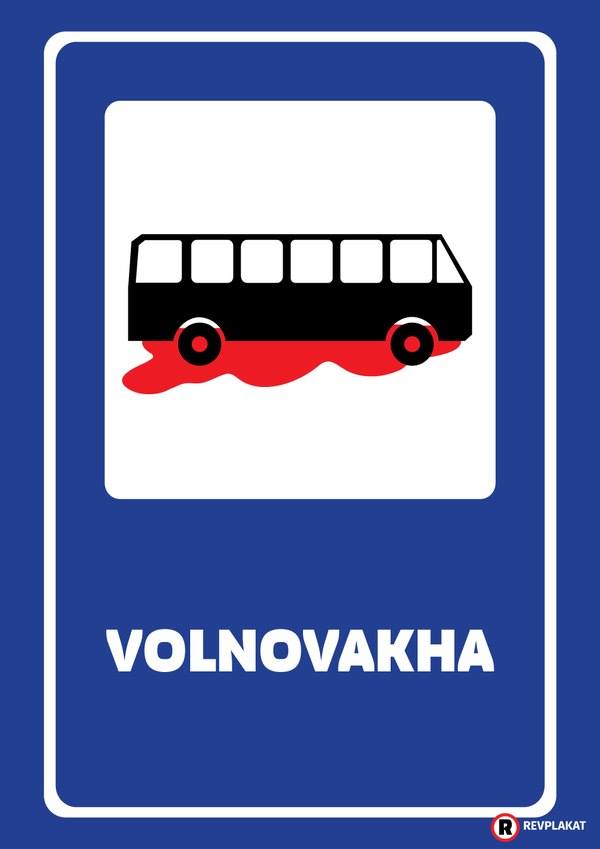On 18 January 2015, people in 50 cities from 18 countries came out to rally against Russian terrorism in Ukraine. The worldwide rally was sparked by a shelling of a civilian bus near the eastern Ukrainian city of Volnovakha from territory occupied by pro-Russian militants that took place on January 15 and killed 13 civilians. Taking place under the the hashtags #JeSuisVolnovaha and #JeSuisUkraine, it compares the January 11 terrorist attack on the Charlie Hebdo satirical magazine in Paris, which trended in the internet under #JeSuisCharlie, to the everyday killings of civilians in Donbas which go unnoticed by the western media. A ceasefire regime established on September 5 is violated by Russian-backed militants on an everyday basis, leading to everyday deaths of people. On January 18 another civilian bus was shelled, this time in Dokuchaivsk, killing one and wounding eight. Supporters of Ukraine around the world gathered to honor the memory of the victims and to demand a reaction to the Russian-fueled terror in Ukraine (click on the cities to go to the event).
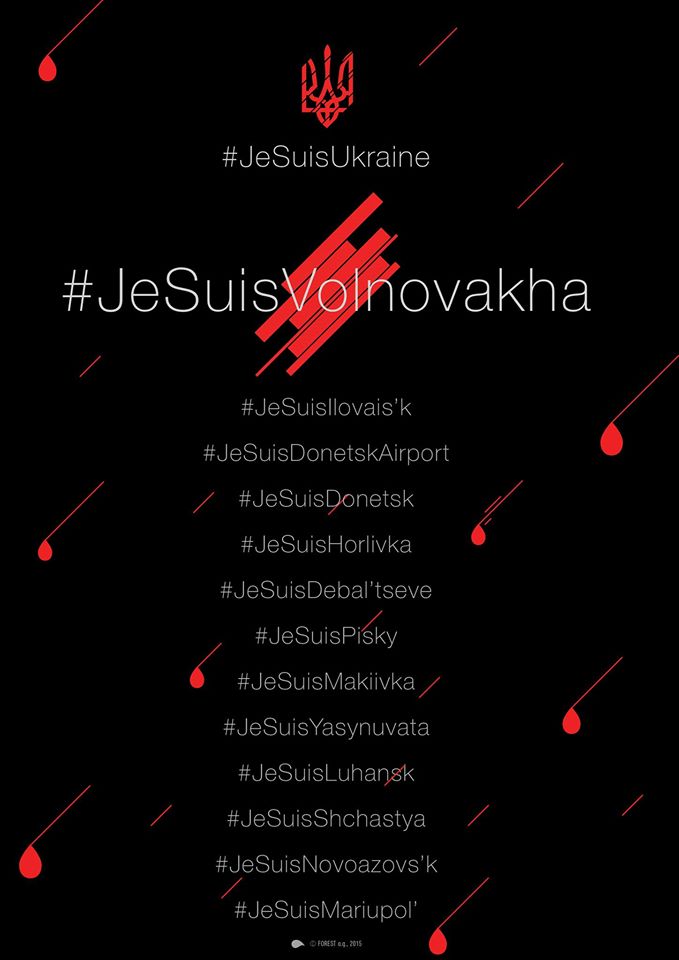 #JeSuisVolnovaha isn't about only the tragic bus shelling in under Volnovaha. Every day in Ukraine, civilians and Ukrainian servicemen get killed in a Russian-instigated and fueled conflict that takes the lives of not only Ukrainians, but Russian soldiers. According to Putin, they were never in Ukraine, but online communities are making databases with identities of Russian soldiers KIA in Ukraine. The death toll estimates for both the Ukrainian and Russian side reach 11 500.
On December 6, Ukraine's PM Arseniy Yatsenyuk announced that Ukraine has begun a lawsuit against Russia for violating the UN convention on terrorism by financing it. Russia has been accused on multiple occasions for providing arms and military equipment to the militants in Ukraine, as well as having its troops taking part in combat against the Ukrainian army. Apart from that, the Russian special services have been involved in organizing terrorist acts inside Ukraine.
#JeSuisVolnovaha isn't about only the tragic bus shelling in under Volnovaha. Every day in Ukraine, civilians and Ukrainian servicemen get killed in a Russian-instigated and fueled conflict that takes the lives of not only Ukrainians, but Russian soldiers. According to Putin, they were never in Ukraine, but online communities are making databases with identities of Russian soldiers KIA in Ukraine. The death toll estimates for both the Ukrainian and Russian side reach 11 500.
On December 6, Ukraine's PM Arseniy Yatsenyuk announced that Ukraine has begun a lawsuit against Russia for violating the UN convention on terrorism by financing it. Russia has been accused on multiple occasions for providing arms and military equipment to the militants in Ukraine, as well as having its troops taking part in combat against the Ukrainian army. Apart from that, the Russian special services have been involved in organizing terrorist acts inside Ukraine.


